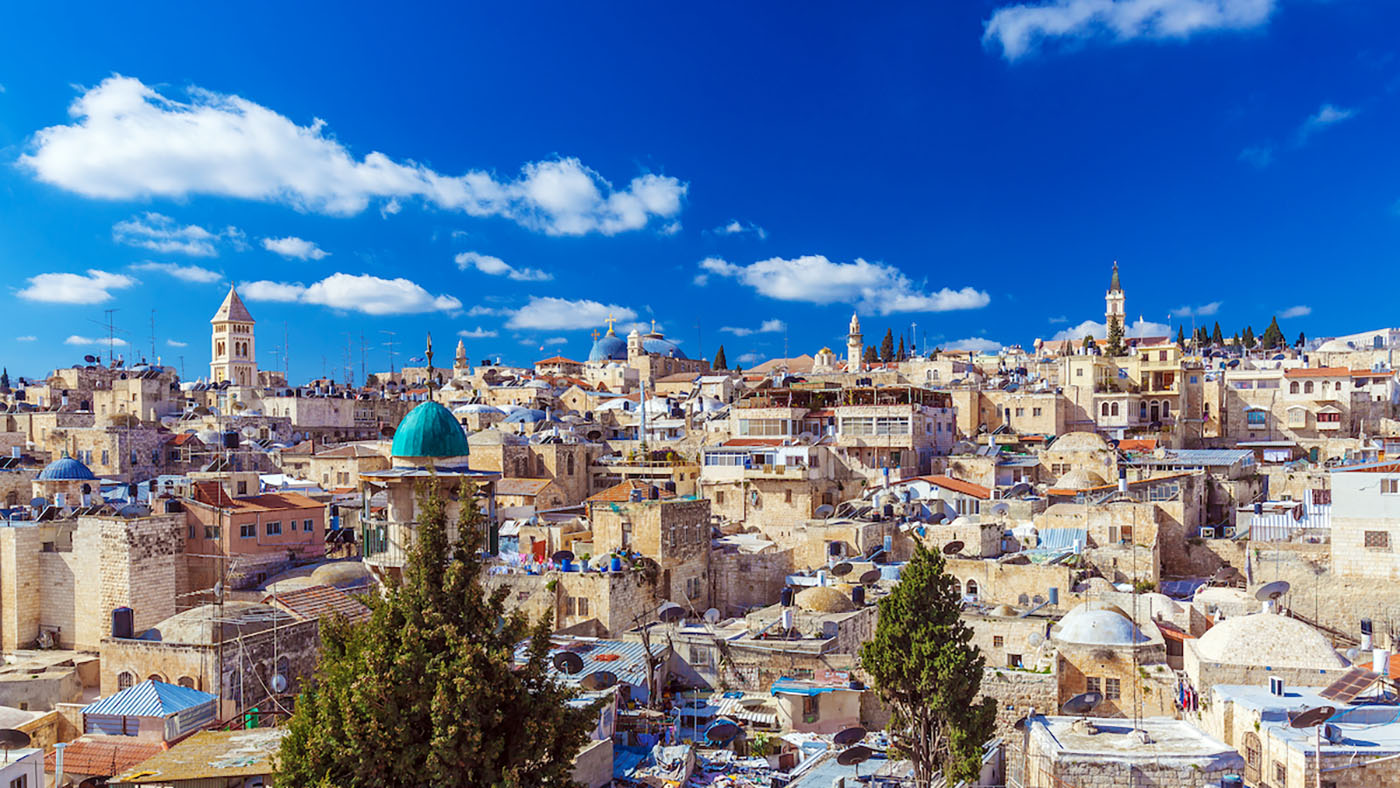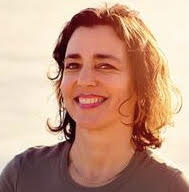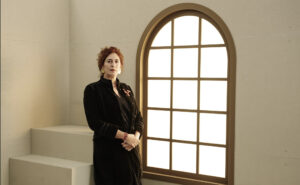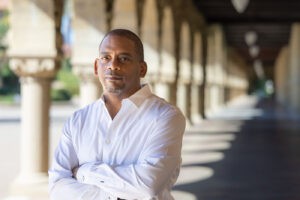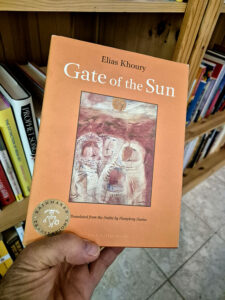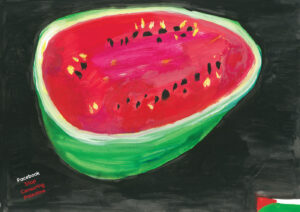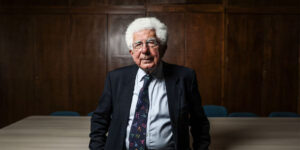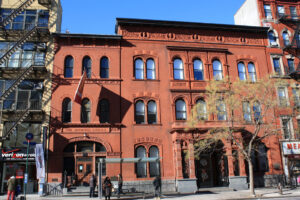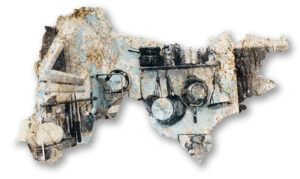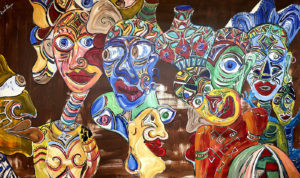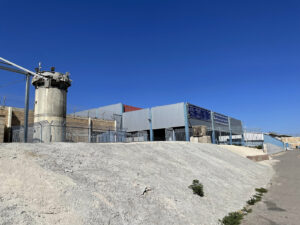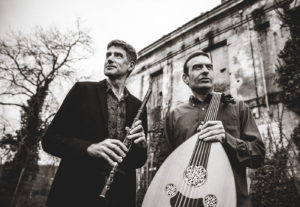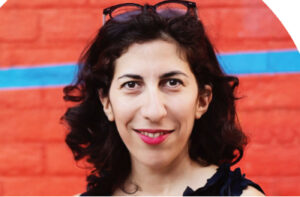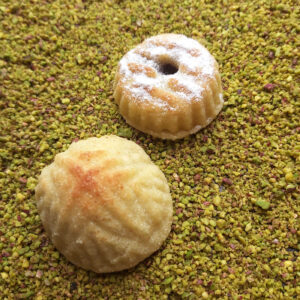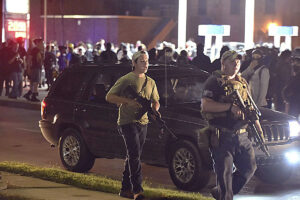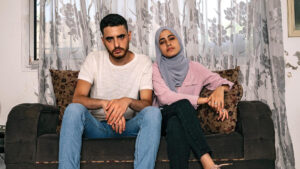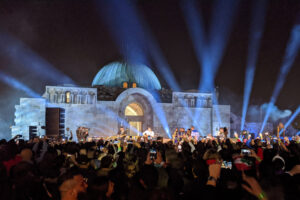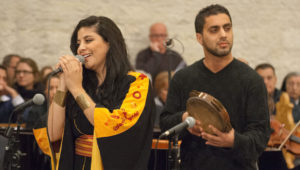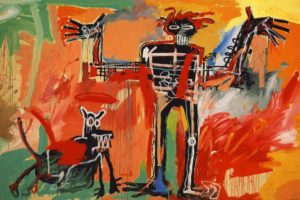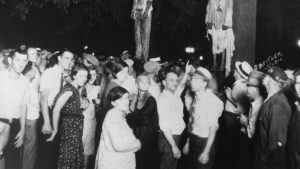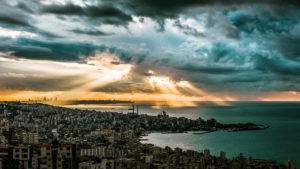Jenine Abboushi
I took my children to visit Palestine a number of years ago, and during our time in Jerusalem, a dear friend told us to meet him near work, at Café Aroma across from Ben-Yehuda market. Once we arrived, we ordered juice and coffee from one of the many servers behind the counter and took a table near the door. Still stunned by our walk from Damascus Gate to Yafa Street, I marveled at how separated the Israelis made West Jerusalem seem, with landscaping and new structures, creating an exclusive dominion. How seamless this same walk felt years ago when I lived in Ramallah and came to Jerusalem! Then we sometimes encountered checkpoints, but nothing like the giant, electrified cage that is the Qalandia crossing we pass through today to get to Jerusalem. Heading to Yafa Street with the children, I felt we traversed into another world, which conjured up old feelings of being made a stranger in my homeland. I searched for familiar places, Palestinian traces in the old stone buildings, trying to locate a cinema, or the stores I knew in the 1980s. I could not always make out who might be Palestinian in the street. My children perhaps absorbed my disquiet, and looked uncomfortable as they sat at the table at the café with their large, freshly-squeezed juice.
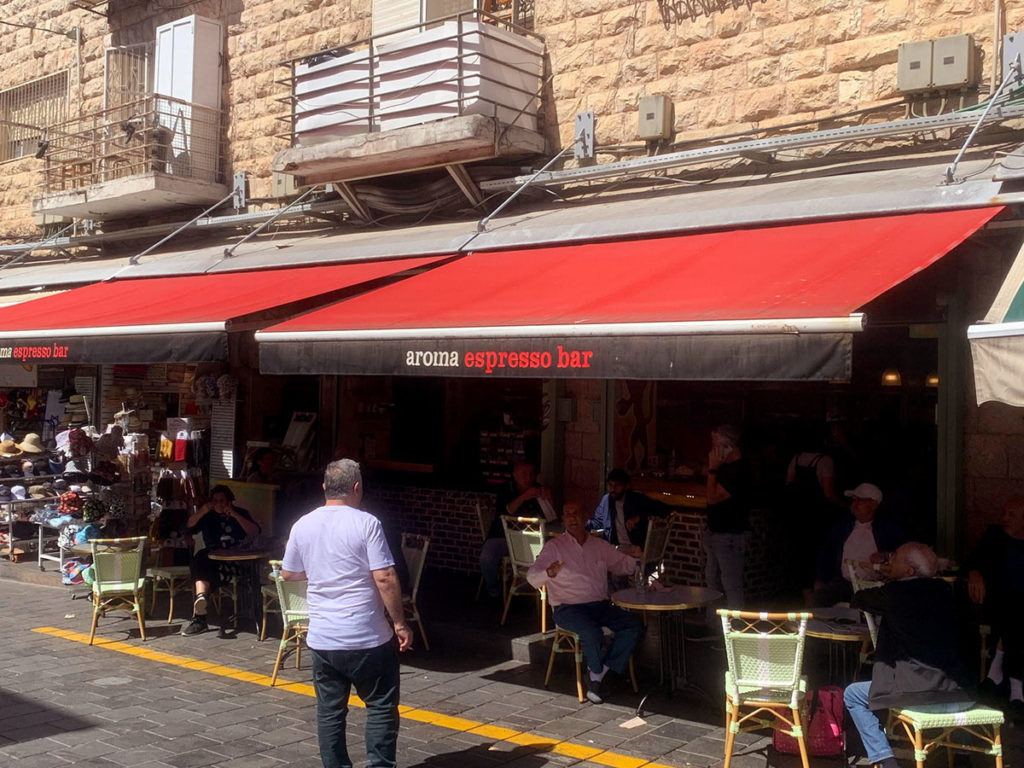
Café Aroma is a boisterous spot with a long counter and many young men serving people in the kind of practiced labor that transforms into choreographed movement. We quietly watched the interactions between people. Suddenly a woman, probably in her late 50s, cut off our view, pressing against our table, telling us in a scolding voice and with big gestures to get up and give her the table, leaning over to see how much was left in our cups. “Stay put,” I calmly told my startled children, and we had to hold our ground until she finally retreated, eying a newly cleared table. This experience of course further undid what may have been a pleasant café moment, until my friend Nasser stepped in. Before catching sight of him, we heard his voice booming warm greetings in Arabic to all the servers, to our surprise, and with their joyful responses, hands up, the café was soon filled in Arabic symphony. He hugged and kissed us and explained that the shabab, young men, are all from the Muthalath, the Triangle, and he introduced us to them. They were suddenly beautiful in their broad smiles, in all the color and fluidity of bicultural peoples. The children were enchanted.
This ease in moving through our country was at first cultivated, an understanding and decision, and then it became natural, grown of a simple truth: we belong to all of Palestine, even with the massive Israeli alterations and thefts, human and material damage to our people that is so painful to us.
Soon we headed out and we strolled through the old city. I do not know anyone who loves Jerusalem, all of its worlds and histories, more than Nasser, to the point of embodying the city in his person. Playful with the children, he called into several souvenirs shops as we passed (“Ya Abu Samir, are you still selling those trinkets that say “Holy Land, Israel” on them?” “Yes,” came the simple answer, followed by their friendly greetings.) His antics, creating a veritable itinerant circus, had the children in hours-long hilarity, encouraging me, in turn, to accompany him in the open, human comportment he assumes, ever since we were teenagers, going all over the country, speaking with everyone no matter who or what they are. By his example, I learned this way of being, and during the rest of my journey with my children, I vested myself in this half-forgotten consciousness, like a favorite old jacket, and my children fell into a similar, watchful ease.
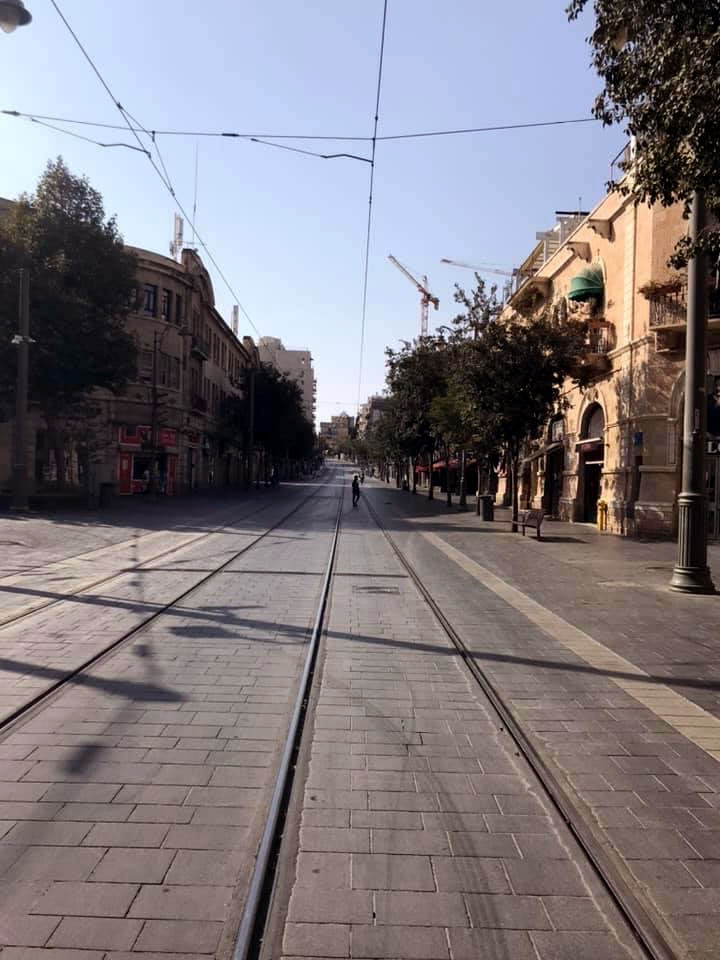
This ease in moving through our country was at first cultivated, an understanding and decision, and then it became natural, grown of a simple truth: we belong to all of Palestine, even with the massive Israeli alterations and thefts, human and material damage to our people that is so painful to us. And we keep moving about, offering our presence in accessible parts of our historic land, mixing with all people, refusing to be isolated and separated, or under siege within. Coming of age, West Jerusalem was where my friends and I would seek lovers’ anonymity, shop at Hamashbir or the small boutiques around Yafa Street (where my mother bought me my first bra), buy condoms for first amours — in a nearby world away from the watchful eyes and village gossip of Ramallah. I would watch with longing the Israeli, or maybe Palestinian Israeli girls — never knowing which — we saw chatting in groups on street corners, with their curly hair, long and thick, tanned bodies and cut-offs — and those sexy, flat brown leather sandals everyone wore.
We felt this was our world as much as it belonged to Palestinian Israeli citizens. While at Birzeit University, we sometimes visited friends and comrades at the Hebrew University (once spontaneously dancing debke on stage, lamentably out of sync, as we had not been practicing but the students there said we could have just stood on stage smiling and they’d be as thrilled we were there amongst them). We would romp around the old city and West Jerusalem, sometimes cutting classes to get there. While Birzeit students, we would also go to the cinematheque for film festivals, like a Czech festival I once attended in full. And when I took my children to this favorite place, it was so cut-off from the old city that again we felt we were forced to enter another dimension to get there, just steps away from Bab Al-Khalil, Jaffa Gate.
Walking our Jerusalem, a relatively small city, if dense and deep, now involved crossing frontiers at once outlandish and intimate. On the way, my children pointed out the double roads that we passed over: one perfectly paved with sleek buses for Israeli use, and the other of faded tar, with shabby vehicles, used by what the Israelis call aravim (us). Indeed, it looks like French colonial Algeria, from Pontecorvo’s scenes of the ineffably opposing worlds of the French city next to the medina in The Battle of Algiers.
Our generation of student activists in the 1980s learned to move through all of Palestine even while living under Israeli occupation, as this was before Israel’s barricading wall that now cuts through the land, taking an improbable course, frequently shifting to swallow newly confiscated Palestinian land. We had significant social and family life across the Green Line, particularly by our yearly pilgrimage to the Nazareth’s Voluntary Work Camp, conceived to create solutions as the “Arab” part of the city consistently lacked Israeli state funding for infrastructure. Our contacts with Palestinians min el-dakhil, from inside (the Green Line), were powerful, marking us. Families opened their homes to accommodate young volunteers from the West Bank. By day, we worked clearing lots and land, planting, helping to build a foundation of a school one year, working in formation by passing, in a long line, black rubber containers of cut stone, singing and chanting to lighten the load and draw us together as the one people that we are. By night large crowds of volunteers met at the campsite, listening to speeches, singing, sitting on the ground in circles, making new friends, both international and Israeli citizens.
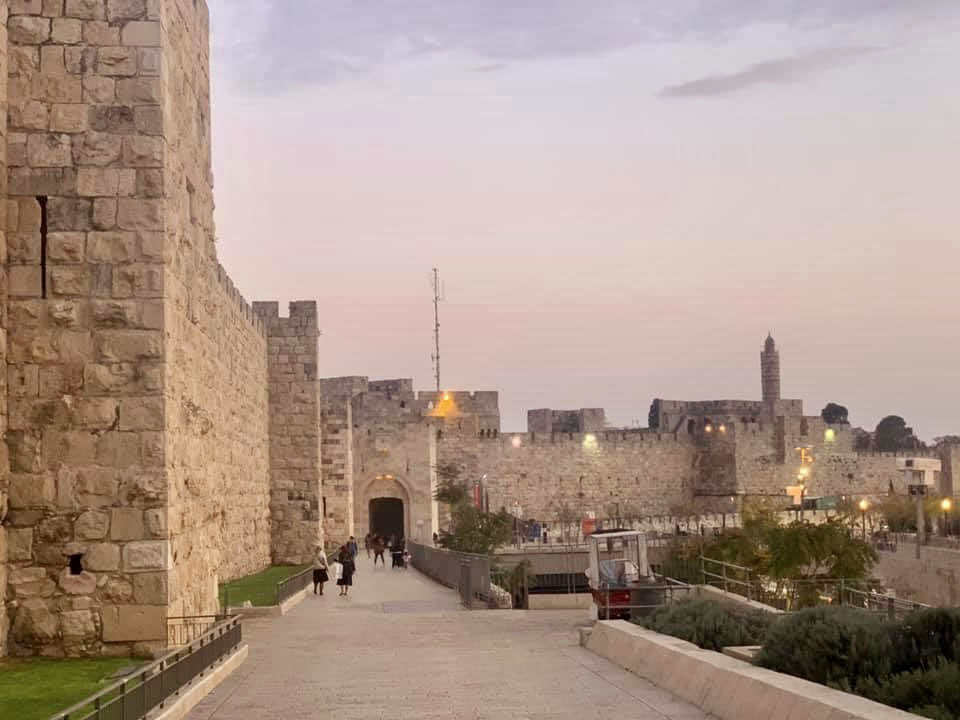
We all were excited to be able to meet legendary figures like Tawfik Ziyad (poet, communist mayor of Nazareth, and Knesset member), and the Palestinian writer Emile Habiby, author of the much-translated Arabic novel, The Secret Life of Saeed: The Pessoptimist. On the way to Nazareth every year, our West Bank group would buy picnic food from a deli near Tel Aviv beach and go swimming, taking buses across the city, despite our worry that if we were noticed we might be taken in by the police.
In recent decades, the Israelis separate Palestinians from each other quite ruthlessly by sealing off Gaza, by making passing across the Green Line exhausting, humiliating, often impossible. Despite diminished contact between the Palestinians who are Israeli citizens and the rest of us who have West Bank hawiyat—or no papers at all, like my family, who lived there in precarity — during the 2021 intifada, all of Palestine rose in protest together, from both sides of the Green Line. We are one people.
And yet probably the most emotionally painful source of discrimination for Palestinians min al-dakhil, from the inside, is the discrimination they experience in Arab countries and at the hands of other Palestinians. Palestinian Israeli passport holders are routinely questioned: How could they accept such a passport? Speak Hebrew? Are they traitors? My friend Ruba Husari, at the time working as a journalist for Al-Hayat, once interviewed Tawfiq Toubi (born in Haifa in 1922, a journalist, communist party deputy, and member of the first Israeli Knesset, remaining a member for 49 years). She says she will never forget how angry and hurt he told her felt when dealing with Arabs. He said “We are traitors because we did not leave our homes and are still living in them? Because we are al-samidoun, the steadfast, here on our land?”
Rula was adamant about keeping her Israeli passport, retaining her rights to her homeland, and her three children are also Israeli citizens.
And Palestinian citizens of Israel living in Jordan, for example, are sometimes inexplicably or openly denied jobs because of their Israeli passports. Another friend, Rula Abu Kishk, moved with her family to Ramallah from Nazareth in 1975. Her mother Ikhlas Fahoum was from a prominent family in Nazareth, and her father Bakr Abu Kishk was from a Bedouin family from the village Abu Kishk, destroyed by the Israelis. The family was compensated some two percent of the worth of their lands, and displaced to the middle of nowhere near Lod airport, on a lot surrounded by Nir Zvi moshav that regularly tries to buy out their land. Given his newly acquired Ph.D. from the States, the Ministry of Agriculture wanted Rula’s father to develop Jewish areas, and when he insisted on working in Arab areas, they made him stay home.
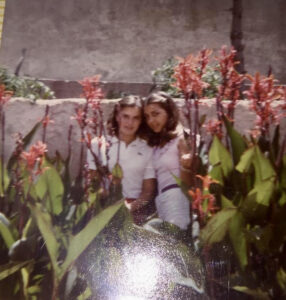
He met Hanan Mikhail Ashrawi who helped connect him to Birzeit University, where he was then hired as an economics professor. The family moved to Radio Street, and they were likely the only Israeli citizens living in Ramallah at the time. Rula believes it is ignorance of their own history that explains the illogical questioning she and her family endured over the years. (Would they have been less tainted, more legitimately Palestinian, had they handed over to the Israelis their keys, homes, lands, and exiled themselves to avoid becoming Israeli citizens?) The Abu Kishk girls feel hurt that their father was once blocked from promotion at Birzeit by someone on the board, and likely with the complicity of central administration, because of his Israeli citizenship. Rula’s sister Reem notes that until today the university does not represent their father in their accounts and photos of past faculty, even though he was highly respected, and established an important research center for the University.
Living in Amman today, Rula recently had a job offer as a project manager withdrawn from her because of her Israeli citizenship, and she suspects she was passed over after interviews for other jobs for several years now for the same reason. She did work with USAID for many years in Jordan, as they have the clout to impose their candidate. There is no law forbidding hiring her as an Israeli citizen, she explains, just prejudice. Had she accepted Austrian citizenship (by her husband Suhail), she would have had no problem finding jobs. But Austria allows for a single citizenship, and Rula was adamant about keeping her Israeli passport, retaining her rights to her homeland, and her three children are also Israeli citizens.
This discrimination against Palestinians who are Israeli citizens is typical in Jordan. Azmi Bishara’s sister was denied employment; she now owns Tanoreen, a very successful Palestinian restaurant in Brooklyn. And Jordan is over 90 percent Palestinian! In its official discourse following Oslo, Jordan insisted upon Jordanian identity and the assimilation of Jordanian nationals of Palestinian origin (“We are all Jordanian” and “Jordan First”). The Israeli goal is to erase Palestinian identity, and the Jordanian goal is to neutralize internal conflicts between Palestinians and native Jordanians. This lesser-known outcome of Oslo is largely successful, and new generations of Palestinians most often call themselves Jordanians instead of Palestinian Jordanians.
It is only as Israeli citizens that Palestinians min el-dakhil can fight for equal rights, where generations speak their two languages, and live bicultural lives.
The Israelis also try to confiscate Palestinians’ Israeli passports, particularly from Jerusalemites. Zaher Hidmi, my cousin’s husband, now living in San Diego, says that once when he flew out of Tel Aviv airport the border police would not return his Israeli passport, saying he doesn’t need it now that he has an American one, and he can get it back if he returns. Zaher told them that what they are doing is illegal under Israeli law, which allows dual citizenship. The border police handed it back, and Zaher thereafter kept it hidden with his mother in Jerusalem. Later she gave it to a Palestinian who said he could renew it for a sum of money. They never saw him again, and they found out that he works for the Israeli police. Zaher says he will hire a lawyer to get his Israeli passport reissued and apply for citizenship for his two Palestinian American sons.
The choice of a name is a decision, a belonging. And for Palestinians who were not successfully driven out by Israel, there continues to be a real struggle in naming Palestinian Israeli citizens (and many would be offended by this name). The Israelis still call Palestinians “Arabs,” as if to indicate they could as well live in any Arab country. Like many colonized peoples, the Palestinian Israeli citizens most often refer to themselves as Arabs (they are Arabs, but they are Palestinian Arabs — and it is perhaps the most enduring success of the PLO to have imposed the Palestinian identity in the world). New generations are increasingly insisting on being called Palestinian citizens of Israel, replacing Arab Israelis, followed by ‘48 Arabs, then ‘48 Palestinians. And yet names that do not include “Israeli” arguably reinforce prejudice, shame, and deny a reality in which we need to impose change. It is only as Israeli citizens that Palestinians min el-dakhil can fight for equal rights, where generations speak their two languages, and live bicultural lives.
Israel would like to continue to steal more land and water, to drive the Palestinians into Bantustans inaccessible to one another, and perhaps retain a tiny minority of aravim amongst themselves for folkloric purposes, and to prove they are not racist and do not engage in ethnic cleansing. And if our struggle for justice and equality remains strong, in the most optimistic scenario we may all one day become Palestinian Israelis (or another post-Zionist country name), and everyone who lives today in historic Palestine remains, and we apply the Palestinian right of return. There is no apparent population problem to date, as Israel admits all Jews as citizens upon arrival.
I live in this future already. We must support the Palestinians who choose to stay in their country, against considerable odds, in all of Palestine. We are one people.



